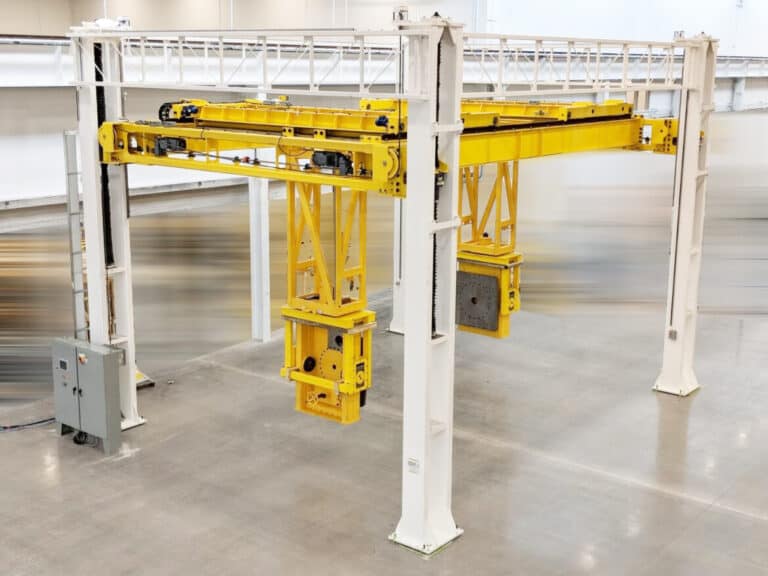Comprehending the Inclusions of moving and Freight Forwarding in the World of Residential and Worldwide Delivery
Steering with the intricacies of moving and Freight forwarding can be tough. Both processes entail unique procedures and requirements that are essential for effective transportation. Understanding the distinctions in logistics, documents, and threat monitoring is essential for services and individuals alike. This expertise can greatly influence the efficiency and safety of shipments. However, several are unaware of the particular elements that influence the general experience and end results. What variables should one take into consideration to ensure a smooth changeover?
The Fundamentals of moving and Freight Forwarding
moving and Freight forwarding are basic components of the worldwide logistics market. They promote the transfer of goods and individual valuables throughout residential and global borders. moving primarily entails the relocation of people or households, encompassing business and household demands. It typically consists of packing, packing, delivering, and unpacking things at the destination. On the other hand, Freight forwarding is focused on the shipment of items, usually wholesale, utilizing numerous transportation settings, such as land.freight, sea, or air forwarders work as middlemans, collaborating logistics to guarantee timely distribution while maneuvering via complex regulations and custom-mades treatments. Both processes need mindful planning, company, and communication to ensure efficiency and minimize disturbances. Understanding these principles is crucial for any person included in logistics, as they prepared for advanced aspects of shipping and transportation monitoring.
Secret Parts of Freight Forwarding Providers
Freight forwarding solutions include a number of important parts that ensure smooth transportation of items. Key duties of Freight forwarders consist of handling logistics, collaborating shipments, and dealing with customizeds clearance. In addition, understanding essential delivery documentation is crucial for compliance and effective movement of cargo.
Freight Forwarder Responsibilities
A reliable Freight forwarder plays a crucial role in working with the transportation of goods, making sure that shipments are taken care of efficiently and in conformity with guidelines. Their duties include different vital jobs, including picking suitable transportation routes, negotiating Freight rates, and managing logistics. They function as middlemans between carriers and carriers, ensuring that freight is correctly packaged and labeled for risk-free transportation. Additionally, Freight forwarders track shipments, offering updates to customers about the status and expected delivery times. They also examine and handle threats related to transportation, suggesting insurance choices as required. By helping with communication and paperwork, Freight forwarders simplify the shipping process, reducing prospective delays and boosting general supply chain efficiency.
Shipping Paperwork Basics

Recognizing Customizeds Clearance and Documentation
Accurate documentation is crucial in the customs clearance process, as it ensures compliance with various regulations. An overview of customizeds laws highlights the intricacies faced by carriers and Freight forwarders. Usual clearance difficulties can substantially impact delivery timelines and prices, making understanding this aspect crucial for reliable logistics.
Significance of Accurate Documentation
Steering through the complexities of worldwide shipping needs a keen understanding of customs clearance and the important role of documentation. Exact documentation is vital for ensuring that shipments abide with policies and reach their locations immediately. Correctly prepared records, including expenses of lading, business invoices, and packing listings, promote smooth interactions with custom-mades authorities. Errors can result in delivery hold-ups, penalties, or perhaps confiscation of goods. Additionally, thorough paperwork help in monitoring deliveries and dealing with conflicts. As a result, businesses took part in moving and Freight forwarding have to focus on thorough documents practices to navigate the complex landscape of global delivery successfully. This diligence not only improves operations but also enhances consumer complete satisfaction by making certain prompt shipment.
Customizeds Regulations Review
Guiding customs laws is a vital aspect of international profession that straight impacts the success of moving and Freight forwarding operations. Reliable custom-mades clearance needs an understanding of various laws, consisting of tariffs, responsibilities, and import/export limitations. Precise documentation is essential, as it assures compliance with legal requirements and facilitates the effective motion of products across boundaries. Trick documents commonly consist of industrial billings, packing lists, and costs of lading, which supply detailed details regarding the shipment. In addition, customizeds brokers play a crucial duty in guiding complicated regulations, functioning as intermediaries in between shippers and custom-mades authorities. By preserving extensive knowledge of custom-mades procedures, organizations can considerably reduce delays and decrease costs connected with international delivery.
Common Clearance Obstacles
Numerous difficulties can develop throughout the customs clearance procedure, often complicating the motion of items throughout borders. One substantial problem wants documents, which can result in delays and charges. Merchants and importers must guarantee all needed documents, such as billings, packing listings, and certificates of beginning, is full and precise. In addition, discrepancies in appraisal can activate scrutiny from customizeds authorities, resulting in extra obligations or inspections. Language obstacles might additionally posture difficulties, as miscommunication can bring about misconceptions pertaining to laws. Changes in customizeds policies can create complication, demanding continuous caution by carriers. Eventually, getting rid of these clearance challenges requires comprehensive prep work and a clear understanding of personalizeds demands to assist in smooth international transactions.
Product Packaging and Classifying Needs
Usually neglected, product packaging and labeling requirements play a necessary role in the look at here now delivery procedure, guaranteeing that products are protected and conveniently identifiable throughout their trip (shipping companies). Proper product packaging safeguards items from damages throughout transportation, while also promoting effective handling and storage space. Using proper materials, such as bubble wrap, foam, or sturdy boxes, can stop damage and loss.Labeling is equally essential. Exact and clear labels communicate crucial info, consisting of the location, dealing with directions, and materials. Labels should abide with regulations particular to residential and international delivery, which may include unsafe products recognition or personalizeds declarations.Moreover, standardized labeling practices streamline the tracking process and improve total logistics efficiency. By adhering to packaging and labeling requirements, services decrease the risk of delays, damage, or misdelivery. Ultimately, these methods add greatly to the success of moving and Freight forwarding operations, ensuring a seamless shipping experience for all parties involved
Tracking Deliveries: Relevance and Approaches
Reliable product packaging and labeling set the structure for effective shipment management, but tracking shipments is equally vital in the shipping process. Shipment monitoring gives real-time presence, which assists services and consumers check the progress of their goods. This transparency boosts client satisfaction, considering that customers can remain educated concerning shipment timelines and any type of prospective delays.Several techniques help with reliable monitoring. Barcode scanning is an usual approach, using one-of-a-kind identifiers to keep an eye on bundles throughout their trip. Additionally, general practitioner innovation makes it possible for specific location monitoring, enabling for timely updates and boosted logistics management. Lots of shipping firms now offer digital platforms and mobile applications that offer users with very easy access to tracking information.The significance of delivery monitoring can not be overstated; it minimizes the danger of lost or harmed goods, boosts operational performance, and cultivates count on in between recipients and carriers. Consequently, integrating effective monitoring methods is crucial for successful residential and global shipping operations.
Insurance coverage Options for Your Goods

Securing insurance coverage for items in transit is an essential factor to consider for people and businesses alike. Insurance coverage alternatives vary based on the kind of delivery, worth of goods, and certain threats entailed. Common types consist of service provider liability, which covers loss or damage while in transit, and full-value insurance coverage, giving comprehensive protection for the complete worth of the goods.Shippers might additionally consider marine insurance for worldwide shipments, securing versus dangers related to sea transportation. It is vital to evaluate the certain requirements of the delivery and examine the terms of any type of policy.Furthermore, comprehending exemptions and constraints is essential to stay clear of possible spaces in coverage. Shippers need to involve with insurance policy professionals to check out customized remedies that fit their distinct situations. Ultimately, purchasing the right insurance coverage can alleviate monetary dangers and offer peace of mind throughout the delivery process.
Selecting the Right moving and Freight Forwarding Service
When picking a relocating and Freight forwarding solution, it is essential for organizations and people to thoroughly review their details needs and priorities. Variables such as the quantity of goods, destination, and timeline play a significant duty in this decision-making procedure. Investigating numerous carriers is a good idea; comparing their services, prices, and consumer evaluations can disclose valuable insights.Additionally, it is necessary to take into consideration the experience and experience of the service copyright in managing specific sorts of freight, particularly for global shipments that might entail personalizeds clearance. Openness in prices, consisting of any surprise fees, should also be scrutinized.Furthermore, assessing the level of client support supplied is important, as prompt communication can mitigate concerns throughout transportation (international shipping). Verifying the availability of insurance coverage alternatives assures that goods are safeguarded throughout the delivery procedure. By taking these actions, people and businesses can make enlightened selections that align with their logistics requirements
Often Asked Concerns
What Kinds Of Goods Can Be Shipped Internationally?

Just How Do Shipping Prices Differ Between Various Carriers?
Delivering costs vary significantly between carriers due to variables such as solution rate, freight type, range, and additional solutions supplied. Each provider's pricing design reflects these variables, influencing overall shipping expenditures for customers.
Can I Ship Hazardous Products or Perishables?
Delivering harmful products and perishables goes through rigorous regulations. Providers often need details packaging, find labeling, and paperwork. Carriers must ensure conformity with international and local legislations to stay clear of fines and guarantee risk-free transportation.
What Should I Do if My Delivery Is Postponed?
When faced with a shipment delay, one ought to first speak to the service provider for updates. Then, evaluate any type of notices obtained, evaluate alternate remedies, and maintain all events educated about the situation to minimize disturbances.
Exist Weight Purview for Delivery Containers?
Weight limits for shipping containers differ relying on variables like container dimension and delivery guidelines. Commonly, conventional containers have an optimum gross weight of around 30,000 to 32,000 kgs to ensure risk-free transportation and handling. In contrast, Freight forwarding is concentrated on the delivery of goods, frequently in bulk, making use of numerous transport modes, such as sea, land.freight, or air forwarders act as intermediaries, working with logistics to ensure timely delivery while steering with complex regulations and personalizeds treatments. Secret obligations of Freight forwarders include taking care of logistics, collaborating shipments, and handling custom-mades clearance. A trusted Freight forwarder plays an important role in working with the transportation of items, guaranteeing that shipments are managed efficiently and in compliance with regulations. Efficient packaging and labeling established the foundation for successful delivery administration, but tracking deliveries is similarly essential in the delivery process. Lots of shipping business currently supply digital systems and mobile applications that offer customers with easy accessibility to tracking information.The importance of shipment monitoring can not be overstated; it lessens the danger of shed or harmed goods, enhances operational performance, and fosters depend on in between recipients and carriers.